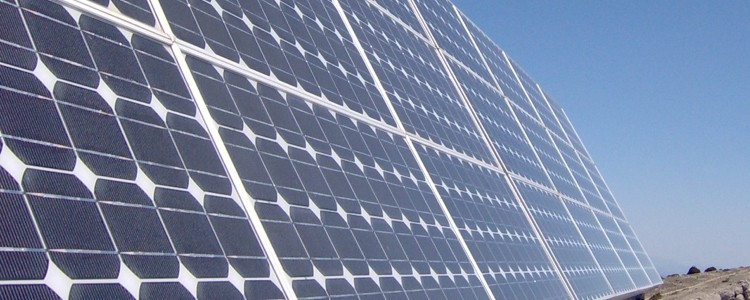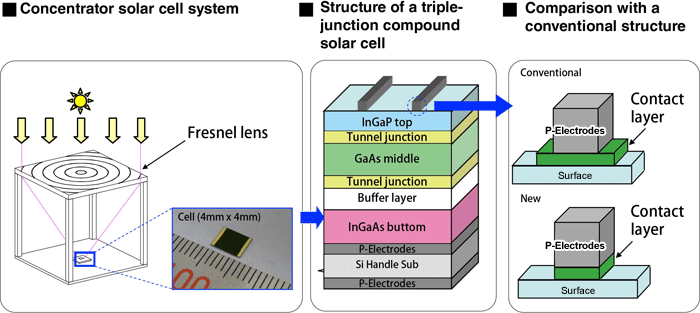
When Sharp isn’t working on their latest LCD and LED televisions, they are actively looking to improve clean energy sources. The Japanese firm has just announced that they have developed the world’s most efficient solar panel, which converts an impressive 44.4 percent of incoming photons into electrical energy.
If this figure means little to you, then it might help to know that the best commercial models can only achieve efficiencies slightly above the 20 percent mark. Needless to say, Sharp’s technological breakthrough is an amazing achievement, and one that will hopefully relieve our dependence on fossil fuels.
Sharp used a concentrator triple-junction compound solar cell to attain the 44.4 percent efficiency, as confirmed by the Fraunhofer Institute of Solar Energy Systems (ISE) in Germany. This means that the light is first passed through a series of lenses that focus the photons on a central location. The concentrated light beam is then converted into electrical power by three photo-absorption layers, made from a multitude of elements including indium, gallium and arsenide.

Despite the breakthrough, you shouldn’t expect to see the Sharp panels powering your house or heating your swimming pool; at least not anytime soon. Due to the high costs associated with the compound cells, they are primarily used on spacecraft and satellites. But don’t fret – like any other good invention, it just takes a little bit of time before it reaches the masses. So be patient.
https://www.techspot.com/news/52907-sharp-develops-worlds-most-efficient-solar-panel.html